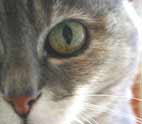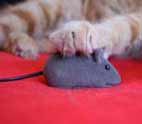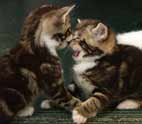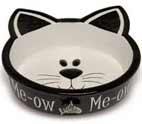Cat Grief
The Death Of A Pet Affects Everyone
Cat grief! Can this really happen? This is a question I get asked a lot from owners worried about their remaining cat after the loss of a pet in the household.
My answer always varies depending on the relationship the two animals had during their life together.
In situations where the cats were very close, my answer would always be yes, they do feel loss and grief.
This may come as a surprise to some cat owners and many may not know how to cope with situation if it arrives.
However it is certainly something we should be prepared for and the more we understand about cat behaviour, the more we will be able to help them through a period of mourning and cat grief.
On this page:
How Cats Bond Together
The Signs of a Grieving Cat
How Can We Help Our Cat?
Cat Bonding
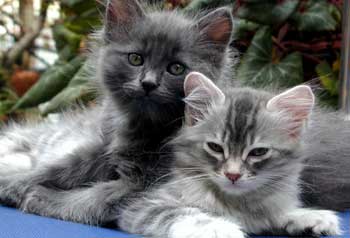
In the wild, cats are usually solitary creatures and will live happily on their own or in small groups.
This is mainly due to their fierce territorial instincts and the need to keep as much of the prey for themselves.
However, since humans domesticated the cat, or should I say since the cat decided to choose to share their lives with us in our homes, things have changed.
Now that cat food is so abundant and the need to fight off other animals in their territory has diminished, cats have learned to live together in the same household quite happily and to build bonds with each other.
Many cat owners report that their pet cats will groom each other, sleep together and have rough and tumble play fights with each other other daily. This is certainly not wild behaviour for adult cats (it's more like kitten behavior) and shows a companionship between the animals.
It is therefore not surprising that cat grief is a real emotion if one of the pets passes away.
The Signs Of A Grieving Cat
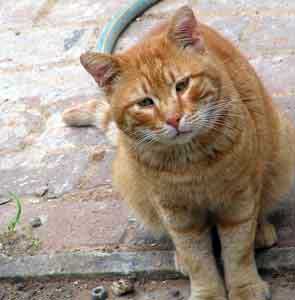
It can sometimes be difficult for cat owners to identify if their cat is mourning loss of a pet, as they cannot cry or tell us how they are feeling and this is often why cat grief is over looked.
However there are signs to look out for:
- Loss of appetite
- Listless behaviour
- Wandering around as if looking for the other cat
- Calling for the other cat
- Sleeping more than usual
- Lack of interest in their favourite toys
Although these can also be symptoms of ill health, if they are present soon after the passing of another pet or person, it is likely to be down to cat grief.
How Can We Help Our Grieving Cat?
Wait Before You Get A New Pet!
As with anyone grieving, time is as they say a great healer and so it is important to give our cats time to come to terms with their loss.
This is why it is important not to rush out and try to replace the pet with another animal, under the false belief that it will be a new friend for your cat.
This can be disastrous. After all, your cat will not know what death is. All they know is that their friend is not around anymore.
If a new pet is brought into the house too soon, it will be seen as trespasser. This can lead to aggressive behaviour that may never completely disappear.
A new pet should not be considered until at least three or four months have passed and only then if your cat has returned to their normal behaviour and you feel that a new pet would be beneficial. Some cats may be happier on their own.
Distraction
Try to engage your cat in games several times a day. This will help to distract them from the cat grief and will help to build self-confidence again, as some cats can feel a little lost and unsure when circumstances change in the home.
It is important to note, that extra treats should not be given to try and encourage them to play, this can have the reverse effect and can be seen as being rewarded for not playing.
Food
Where cat grief has caused a loss of appetite, it is down to us to try and make the cats food even more appealing than before. This is important as long-term loss of appetite can lead to severe loss of weight.
Warming the food slightly will increase the smell of the food and trigger the cat's appetite. Introducing a new type of food will also add interest for the cat. In severe cases of cat grief where the cat cannot be enticed to eat, a vet can prescribe a drug which will increase the appetite and decrease anxiety in the short term until the cat returns to normality again.
Grooming
Spending extra time with your cat will also help them overcome their loss and grooming or gently stroking the whole cats body is a great relaxant for them.
The extra attention will also distract them from looking for the other cat and over time the realisation that the other cat is not coming back will increase until they no longer miss them.
It can be difficult for cat owners to pay extra attention to their remaining cat during this period, as you may be so affected by your own feelings of grief. However it is important to interact with your cat at this time to avoid cat grief becoming a major problem for your pet.


